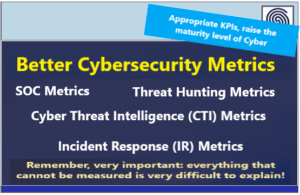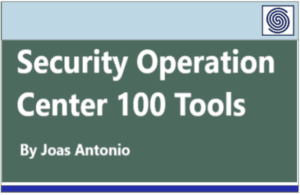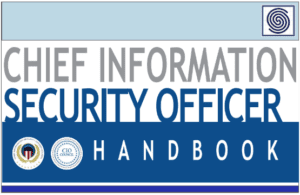Source: securityaffairs.com – Author: Pierluigi Paganini
Pierluigi Paganini
December 05, 2024

SOC analysts, vital to cybersecurity, face burnout due to exhausting workloads, risking their well-being and the effectiveness of organizational defenses.
Security Operations Center (SOC) analyst burnout is a very real problem. These are some of the most important cybersecurity professionals out there, and many of them are being worked to exhaustion. Amidst an already overstretched cybersecurity workforce—ISC2 estimated in 2023 that there was a 4 million gap between supply and demand—it’s enormously important that we address this problem.
But it doesn’t have to be this way. Recent advances in artificial intelligence (AI) technology offer unprecedented opportunities for organizations to reduce the burden on struggling SOC analysts so they can focus on more strategic tasks, their mental health, and their overall well-being.
The Reality of SOC Burnout
SOC analysts have it rough. Research published in Dark Reading in 2022 revealed that 70% experience burnout, and 65% said they were likely to change jobs in the next year. Whether they did or not, we’ll probably never know. What we do know, however, is that effective cybersecurity relies on these analysts being happy and healthy. And right now, they’re not.
To understand how AI can reduce SOC burnout, we must first understand the factors that contribute to it. The two key problems are:
Alert Overload
Modern security environments generate an extraordinary number of alerts. Many of these alerts are false positives or low priority. The problem is that many SOCs attempt to detect every single potential threat – an approach that is neither sustainable nor possible. As such, analysts are hit with a deluge of low-quality alerts, increasing the risk of missing genuine threats.
Mundane Work
Working in a SOC that lacks AI capabilities can be extremely dull. Much of the work involves repetitive, low-value tasks like investigating alerts. Gathering information from the huge number of sources inherent in modern IT environments is laborious, mundane, and mentally exhausting.
For instance, a simple suspicious login alert might require an analyst to check user activity logs, verify access patterns, and cross-reference data across various security platforms. Moreover, when analysts have to complete these tasks, they have little time for more meaningful work like threat hunting or strategic planning.
How AI Can Reduce Burnout
In short, AI can help SOCs overcome the problems listed above. They do this by:
Filtering and Prioritizing Alerts
AI can reduce alert fatigue and analyst burnout by filtering and prioritizing alerts. Modern AI technologies can analyze huge amounts of data and identify patterns in that data in the blink of an eye. This capability is enormously helpful for identifying genuine threats while weeding out false positives or low-priority alerts. This helps ensure that analysts are only alerted to high-priority issues, allowing them to focus on genuine threats rather than sifting through endless notifications.
Additionally, AI-driven alert tuning systems can help refine alerts based on an organization’s unique risk profile, reducing unnecessary noise. As a result, analysts can spend their time on alerts that truly matter, which not only reduces their workload but also increases their effectiveness in identifying and responding to real threats.
Automating Repetitive Tasks
AI can also automate many of the tasks that make being a SOC analyst so mind-numbing, including data collection, cross-referencing information, and running queries. For example, an AI system can automatically collect user activity data, correlate it with known threat indicators, and present analysts with a consolidated report. This saves analysts from switching between multiple tools and manually piecing together information, giving them more time to engage in higher-level, more rewarding tasks.
By handling routine work, AI allows analysts to focus on tasks that require human intuition and critical thinking. This shift reduces the mental drain associated with repetitive work and enables SOC teams to maximize their impact with existing resources.
Natural Language Processing
Natural language processing (NLP) is an often-overlooked AI capability that can provide enormous value to SOC analysts. Communicating with other departments and stakeholders is a big part of working in a SOC, but this can be extremely frustrating when those audiences fail to understand technical language or complex security findings.
NLP tools like ChatGPT and Google Gemini can generate clear, concise summaries or even draft emails based on security findings, meaning analysts don’t have to. Some SOCs also use NLP-powered chatbots to answer frequently asked questions or provide instant feedback to non-technical teams, allowing analysts to focus on core tasks without interruption.
SOC Burnout: The Future is Bright
The lesson here is that while SOC burnout might be a huge issue now, it won’t always be. With the intelligent use of AI, organizations can vastly improve the working lives of their SOC analysts. We can only hope that they do.
About the author: Josh is a Content writer at Bora. He graduated with a degree in Journalism in 2021 and has a background in cybersecurity PR. He’s written on a wide range of topics, from AI to Zero Trust, and is particularly interested in the impacts of cybersecurity on the wider economy.
Follow me on Twitter: @securityaffairs and Facebook and Mastodon
(SecurityAffairs – hacking, SOC Burnout)
Original Post URL: https://securityaffairs.com/171724/security/burnout-in-socs-how-ai-can-help-analysts-focus-on-high-value-tasks.html
Category & Tags: Breaking News,Security,information security news,IT Information Security,Pierluigi Paganini,Security Affairs,Security News,SOC,SOC Burnout – Breaking News,Security,information security news,IT Information Security,Pierluigi Paganini,Security Affairs,Security News,SOC,SOC Burnout
Views: 2




















































